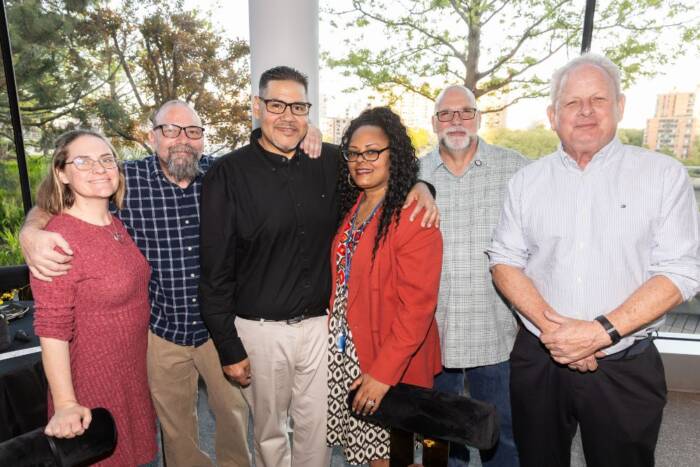Rockefeller University receives nearly $27 million in ARRA grants
Investigators at The Rockefeller University have so far been awarded 41 federal grants and supplemental awards through the American Recovery and Reinvestment Act of 2009 (ARRA) — the so-called “stimulus” legislation passed by Congress last winter. The awards — 40 from the National Institutes of Health and one from the United States Department of Energy — range in size from about $5,000 to nearly $4.6 million and total approximately $27 million. The funds, most of which will be spent over a two-year period, are for new and ongoing projects in biomedical and clinical research and training.
Nearly $10 billion of the ARRA’s $787 billion in funds was designated for health research, training and construction and is being awarded by the NIH. Of that, $8.2 billion is earmarked for investigator-initiated research projects and research training; another $1.5 billion has been set aside for construction, renovation and maintenance of buildings and research facilities. The final $300 million is for the purchase of shared instrumentation. Of Rockefeller’s 40 NIH grants, 36 will fund research and training projects and four, in the amount of just over $2.2 million, are supplements to the Clinical and Translational Science Award granted to the university by the NIH in 2006.
Since the legislation was approved in February, Rockefeller scientists have submitted more than 120 applications for ARRA funding with support from the university’s Office of Sponsored Research and Program Development. The initial round of grants was made late this summer. The NIH has so far allocated just under half of its total $10 billion share of Recovery funds in approximately 13,000 grants, according to public reports released October 30. Granting of the other half currently awaits Congressional approval of the NIH budget for the current fiscal year, which began October 1. Several additional Rockefeller awards are pending this approval.
Among Rockefeller’s 41 awards are seven grants that are highly competitive, including four Challenge Grants in Health and Science Research and three Grand Opportunities (GO) grants. Charles M. Rice, for example, Rockefeller’s Maurice R. and Corinne P. Greenberg Professor in Virology and head of the Laboratory of Virology and Infectious Disease, has received a nearly $1 million Challenge Grant(opens in new window), and Nathaniel Heintz, Marilyn and James Simons Professor, head of the Laboratory of Molecular Biology and a Howard Hughes Medical Institute investigator, has received nearly $4.6 million through the GO program. Both the Challenge Grant and GO programs were established this year specifically to channel Recovery funds.
Additionally, Leon Hess Assistant Professor Sohail Tavazoie, who came to Rockefeller this year as head of the Laboratory of Systems Cancer Biology, has received a prestigious a Director’s New Innovator Award and will use the $2.5 million grant to identify individual microRNAs that may be predictors of metastasis and chemotherapy-responsiveness in colorectal cancer(opens in new window). For a full listing of Rockefeller ARRA grants, click here(opens in new window).
“This administration’s investment in science is very encouraging,” says Rockefeller’s vice president for academic affairs and head of the Laboratory of Genetics Mike Young. “The ARRA funds that have been directed to Rockefeller are helping preserve the university’s scientific research in difficult economic times, and are also furthering important projects that will ultimately benefit human health.”


